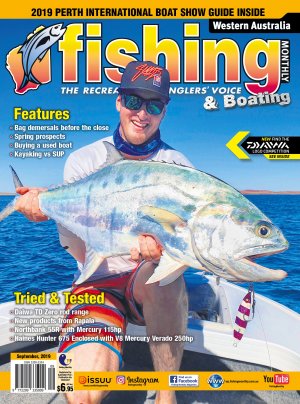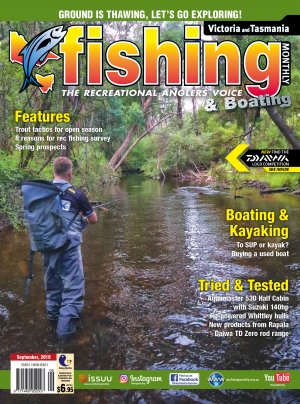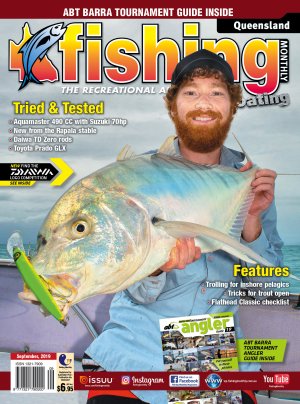A camping trip just wouldn’t be a camping trip if an annoying biting, scratching, buzzing, stinging, itching, crawling, slithering creature of one form or another didn’t invade the camp or just make a fleeting visit.
They come armour plated, feathered, scaled and furred. Some use the cover of darkness to infiltrate your defences while others are more brazen, fronting up in broad daylight in plain view and go about their business with scant regard for anyone or anything. Many are unpleasant, while others can be quite cute until they turn nasty, and then there are those that are deadly.
So let’s have a look at some of the more common pests that have long been associated with camping.
The first and most prolific are the insects.
Mosquitoes are probably the most noticeable, particularly around dusk when they swarm out of the swamps and dark places to invade the camp. They are attracted to the carbon dioxide your body produces, so they will find you wherever you are. Some areas are more prone to mozzies than others. Because many camping areas are near bush or alongside rivers, creeks and coastal swamps, there will be mozzies.
They are one of the most deadly creatures in the world because they carry a host of diseases from malaria (rare in Australia) to Ross River fever, which is a growing concern in the northern parts of Australia and has spread through coastal parts of NSW.
Long sleeves and pants to cover the body and a spray of insect repellent like Aeroguard, Rid, or Bushman will do the job of keeping them at bay. A well-sealed tent with a mozzie coil or two burning an hour before dark, or citronella burners around the camp, should keep them out. There is nothing more annoying than that lone mozzie buzzing around your ears when you are trying to get to sleep.
In this great land we just have to learn to live with flies. Keeping the camp clean and food scraps sealed will keep most of the blowies away but the little bush flies of Summer are a nuisance and they are everywhere. A spray or rub of repellent keeps them at a distance but they still manage the odd kamikaze run into your eyes, up your nose and into your ears or mouth. And it’s always a good laugh if some one other than you swallows a fly.
March flies have a nasty bite and they are relentless in their attack but they tend to be a bit slow, so the best way to deal with them is just let them land and swat them. They are pretty tough so you should give them a good whack.
One good thing about flies is they are daytime creatures so you are free of them during the night until the mozzies arrive.
Tiny biting creatures not much larger than the head of a pin, sandflies pack a punch. Anyone who has ever had the misfortune of being badly bitten will tell you the itching that arrives after a day or so will drive you mad and make you scratch those little red blotches into bloodied sores.
They inhabit swamps and any sandy areas, particularly coastal camping areas next to creeks and rivers. Dawn and dusk are when they are most active but if you fish among the mangroves or camp close to the edge of the bush then may get bitten any time.
Sandflies don’t seem to like wind all that much but don’t count on it keeping them quiet. On calm, humid days they will be out biting all day and when they are thick, they will even crawl into your hair and bite you on the scalp.
Again, long sleeves and pants are major weapons, as is repellent, and don’t think for a moment that if you are exposed for only minimal time that they won’t get you. I have seen blokes wearing shorts get eaten in the time it takes between launching the boat and holding it while a mate parks the car – two minutes led to over 50 bites and a week of mad scratching.
A vitamin B tablet taken daily seems to lessen your attractiveness to them and antihistamines will stop the itches, but then you can’t stay awake long enough to do anything else.
Good friend Kerry Taylor uses and swears by a home-made repellent that lasts forever. She mixes a capful of citronella oil into a 250 ml pump bottle of sorbolene moisturiser and you rub it on exposed skin. It really works and keeps the mozzies off too. She has a good recipe for sticky date pudding as well. It doesn’t keep the sandflies away but it takes your mind off any itchy bites you have because it tastes so good.
Ants can be a major problem: They can infiltrate your food and the larger variety give you a nasty bite. To keep them out of your tucker keep the area clear of any food or leftovers and, in the worst cases, you may have to stand the legs of your food locker in containers of water and make sure that nothing is touching it. You can hang a food locker from a tree branch but they will eventually find it unless you put citronella oil on the rope.
To avoid larger biting ants, check the area where you are setting up camp for nests and try to keep a good distance between you and them. You won’t be the last person to set up a tent in the dark right on top of a bull ant nest.
Bees and wasps are another hazard particularly if you leave open cans of soft drink on outside tables or at picnics. These insects are attracted to the sweet drink, crawl into the can and you can get them in your mouth or throat on the next sip. A sting in the throat has been fatal. Keep all food and drinks sealed when outdoors and don’t drink from a can, particularly when children are involved and seek medical assistance immediately if stung in the mouth or throat.
Few of us like spiders but there are hundreds of them for every square metre of bush and grassland. Most mind their own business. Some are scary-looking, like the huntsman, but stay out of your way.
One spider must be avoided at all costs – the funnel web. They are very common along the NSW coast and they are one of the deadliest spiders on earth. Most of us in urban NSW have them in our backyards and we live inside our fortress houses and that’s the way we like it. But when we are out camping, we can set up tents in the paths of these nocturnal creatures.
Any bedding on or close to the ground should be checked prior to getting in. Always check your shoes by giving them a good solid whack on the ground before putting them on. You could tie the laces together and hang them off the ground for even better security. If someone is bitten, apply a pressure bandage to the affected limb, keep the patient immobilised seek urgent medical assistance.
As venomous as funnel webs are, we really are not going to have everyday encounters with them. They are mainly coastal and usually keep to themselves.
These are generally larger so they are easily seen and for the most part strike fear into the hearts of everyone who stumbles across them. Australia has eight of the world’s 10 deadliest snakes and chances are we will come close to one at some point, especially when camping, fishing or bushwalking. Snakes are pretty switched on and will mostly avoid you at all costs.
We have all probably been very close to snakes many times and been totally oblivious to them but it is that single time you are unlucky enough to accidentally step on one that could lead to a bite.
If there are snakes about, walk heavily and hit the ground regularly with a walking stick and they will stay away. If one stumbles into camp, keep a safe distance and watch to see where it goes. Mostly it will simply keep on going and generally very quickly if you stomp on the ground heavily.
If you are unlucky enough to be bitten, again follow the first aid procedures for snakebite. Apply a pressure bandage to the affected limb, keep the patient immobilised and seek urgent medical attention. Most snakebites are not fatal if treated properly.
Next month we will look at some other creatures that can be a nuisance and a bit dangerous. Happy camping – that is, if you are not too scared!
A nice flat spot on sand close to the scrub will usually mean mozzies and sandflies – standard camping fare.
A typical coastal camping ground between a beach and a creek and surrounded by swamps containing every biting, stinging and buzzing insect known. Holiday heaven!
Low-lying flooded ground just down the road from your camp will mean mozzies by the truckload each night.
A selection of must-have insect repellents including Bushman rub-on repellent, a box of mosquito coils, citronella and a citronella burner.
Reads: 1232



